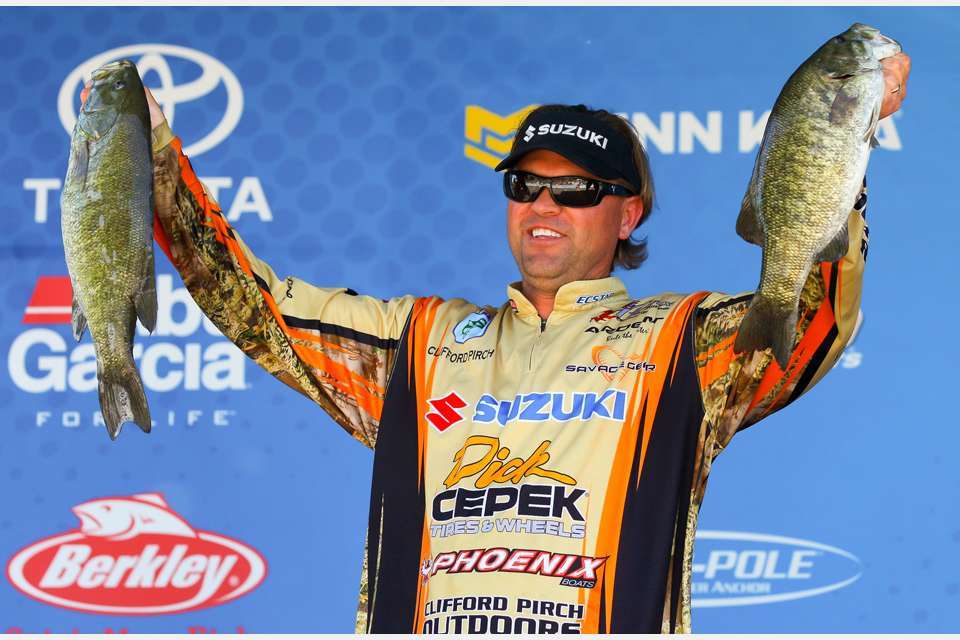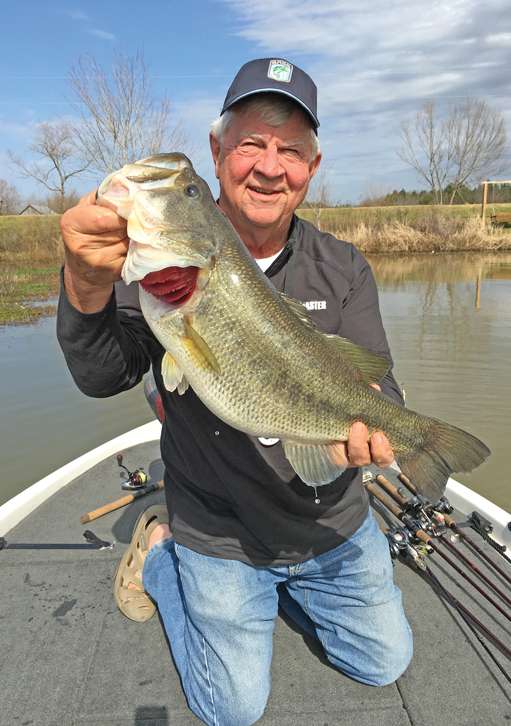
Clifford Pirch has a new mindset for the 2019 Bassmaster Elite Series season. He’s excited about the smaller field, the big-bass fisheries on the schedule and the wider gap between entry fees and payouts.
Even before those changes were contemplated, however, Pirch of Payson, Ariz., was planning a new approach to tournament fishing.
“Nine or 10 years ago, I was known as a gambler,” he explained. “I’d swing for the fences. I hit a few home runs, but I had some lousy finishes, too.
“When I started in the Elite Series, I knew I had to adapt to survive out here. The best thing for my career was to make sure I kept going — to make sure I cashed checks and qualified for the Classic.”
That he did. Pirch has been one of the most consistent Elite anglers since he joined the circuit in 2013. Through 2018, he finished in the money in 46 of 60 tournaments, or 77 percent of the time. He has qualified for the GEICO Bassmaster Classic presented by DICK’S Sporting Goods every seasons and finished in the Top 20 four of the past six Classics.
That’s an enviable record and a smart way to make a living in tournament fishing, especially in previous Elite Series formats.
But Pirch is tired of being outside the winner’s circle.
“One of my goals this year is to bring my tournament game back into balance where I’m able to gamble a little more,” he said. “In survival mode, you’re always weighing your chances and doing what you feel is the best way to survive a tournament and cash a check.”
The only thoughts of survival when Pirch competes in the grueling, midsummer U.S. Open tournaments on Lake Mead, Nev., are whether he can suffer through the oppressive heat.
“There were no points involved; it’s all about going for the win,” he said. He went for the win and won — three times — and placed second three other years. In the U.S. Open’s nearly 40-year history, no one has won it more often than Pirch.
A quiet, overly modest person, Pirch doesn’t seem like a very competitive person to those who don’t know him well. He played football and baseball in high school, although his size held him back, he said. But he flourished in wrestling, winning four divisional championships and placing all four years at the state level. His father, Dennis Pirch, is a legendary wrestling coach from Payson (Ariz.) High School, and his brother was a state champion wrestler.
Clifford Pirch also excelled in outdoor sports. He began fishing with his father as soon as he was old enough to walk, and he never lost the drive after that. A tournament fisherman since age 18, Pirch majored in Zoology at Northern Arizona University, but he left school to compete in tournaments full-time before he could earn his degree. Pirch helped offset college expenses by collecting shed antlers from elk and mule deer in the Arizona highlands. His other summer job was rappelling out of helicopters as a “Helitack” wildland firefighter.
His horn-hunting hobby helped sharpen his skills as a hunter and as one of Arizona’s most popular and successful guides for elk hunters.
He’s as modest about his hunting skills as he is about his bass fishing achievements.
“We live in elk country. Elk hunting has been excellent since the mid-1990s. I’ve gotten some nice elk, and I’ve been with some people who got big ones,” he said.
Editor’s note: Pirch and elk hunting
Asked whether any of his elk or deer have been record-book trophies, he replied, “They would if I chose to enter. I’ve shot some with my bow that would make Pope and Young. I don’t need any recognition for getting the biggest elk — I just enjoy being out there. I get fired up in my own way.”
He also has his own way of dealing with adversity. Pirch would never volunteer that he battles Multiple Sclerosis, a chronic, usually progressive disease of the central nervous system that strikes about 10,000 people in the United States each year.
MS struck in 2000, on the evening after Pirch and his teammate won the team of the year award in a very competitive team circuit in the West. Exhausted after the competition, he lay down for a nap, and when he awoke, he could not see nor walk.
He gradually began to improve but he feared his fishing days were over. Then his close friend and teammate, Reese Randall, convinced him to go fishing with him one day. The experience rejuvenated Pirch, and he was soon climbing leaderboards in bass tournament competitions again.
He attempts to control the ailment with diet, vitamin supplements and exercise, but occasionally it flares up, affecting his balance and his eyesight. “Anytime I get exhausted or am in severe heat conditions, things try to go haywire,” Pirch said. “I lost vision in my left eye for a while, but I can see really well now.”
A quietly religious man — Pirch said his ideal fishing companion would be Jesus — he looks for the positive in his condition.
“You certainly learn a lot from that kind of stuff,” he said. “I learned a little humility through it all. It’s easy to feel like we deserve more, or should be doing better, but we’re not guaranteed that.
“All you have to do is look at a guy like Clay Dyer [a remarkable tournament angler born without limbs] and see what a great attitude he has, and what a great impact he has on folks around him. I certainly can’t feel sorry for myself. People have harder things to deal with than I do.”

